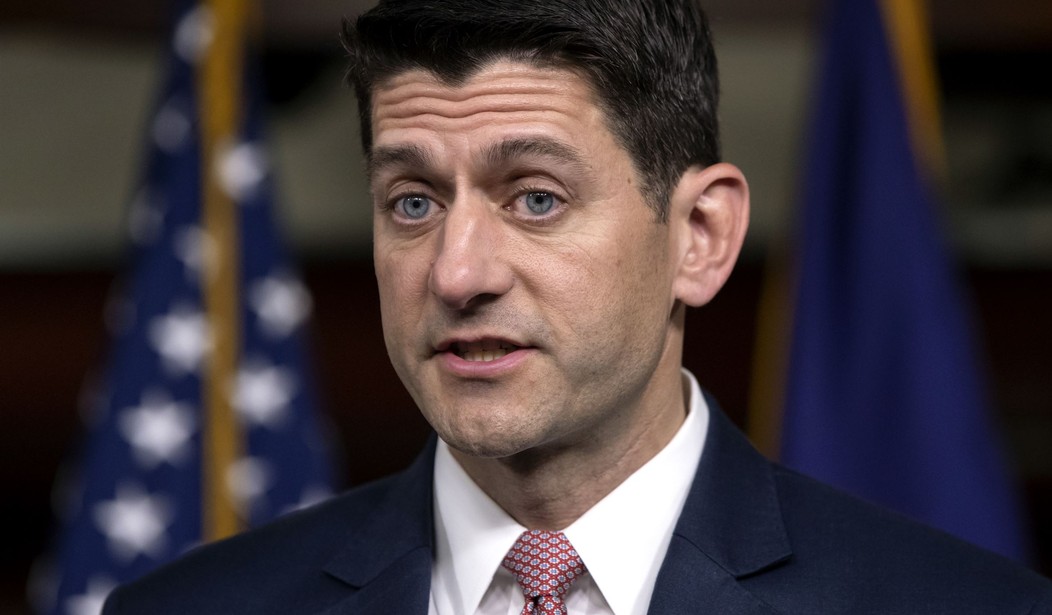Speaker of the House Paul Ryan is playing politics with the lives of some 800,000 young undocumented immigrants who are protected under the Deferred Action for Childhood Arrivals, a program that the Trump administration has been relentlessly trying to end. Some Republican members of the House are fed up. Led by Rep. Carlos Curbelo, R-Fla., 17 Republicans (as of Thursday) have signed a discharge petition to allow a vote on a resolution to put immigration bills on the House calendar to a vote without the speaker's assent. The hope is that once confronted with actual legislation to protect DACA recipients, enough Republicans will vote for a reasonable compromise bill that can actually pass the House. But final passage under this scenario would require -- horrors -- bipartisanship. Ryan has been adamant that he will only allow a bill to get to the floor that can be passed entirely with Republican votes. Why? Fear.
Opposition to immigration -- legal and illegal -- is fast becoming the sine qua non of the Republican Party. It is an ugly turn of affairs -- and one that is inconsistent with the history of the party, going back to Abraham Lincoln. Until Donald Trump became the presidential nominee of the Republican Party, immigration was one of those issues on which a range of views existed within the party. There were free market Republicans like me, who favored changes in immigration law to allow more immigrants into the country, both because we believed it would be good for the economy and because we thought it to be the best way to reduce illegal immigration. There were also those who believed that we should allow only high-skilled immigrants and should seek more punitive measures to discourage illegal immigration, including harsher penalties for employers hiring undocumented immigrants. But few Republicans favored drastically reducing legal immigration, much less punishing young men and women whose parents may have brought them here illegally when they were children but who have lived exemplary lives ever since.
Paul Ryan once fell squarely in the first category -- a man who believed the free market to be the best arbiter of how many immigrants should be admitted, who supported a path to legal status for DACA recipients, who knew that immigrants, even those with low skills, have, for generations, assimilated into the mainstream of American society and who opposed demonizing undocumented immigrants. I know because I first met him when he was a young staffer working for Jack Kemp -- who had been a congressman and George H.W. Bush's secretary of housing and urban development -- in 1994. At the time, California had a nasty referendum on the ballot that would have denied public education to the children of undocumented immigrants, among other harsh penalties. Ryan helped coordinate Kemp's participation in a news conference I organized at the National Press Club to oppose the referendum, known as Proposition 187.
Recommended
People change their positions over time, but Ryan claims he hasn't changed his views on immigration. Last October, along with a group of Hispanic leaders, I met with Ryan to persuade him to bring a DACA relief bill to the floor. He assured all of us that it was his intention to do so and that he would get it done before current DACA recipients began to lose their protected status and right to study and work in the U.S. in March. He also went out of his way to tell the group that he could be trusted. "Linda knows," he told group, saying he has shared my views on the issue "going way back." But to date, he's refused to keep his word.
Ryan now says that allowing votes on immigration bills that would protect DACA participants through a discharge petition would backfire. He says that any bill that could be passed now would be vetoed by the president. But his real worry is that he doesn't want Republicans to have to cast votes on immigration in an election year. Why? Because doing so would expose the deeply anti-immigrant bias of Donald Trump's Republican Party, which could hurt the party in midterm elections.
But lost in Ryan's political calculus is what happens to 800,000 young people who have spent most of their lives in the United States -- studying, working, paying taxes and contributing to their communities -- but who face the threat of deportation. The threat is not theoretical; it is real. Their fate is now in Paul Ryan's hands.
























Join the conversation as a VIP Member